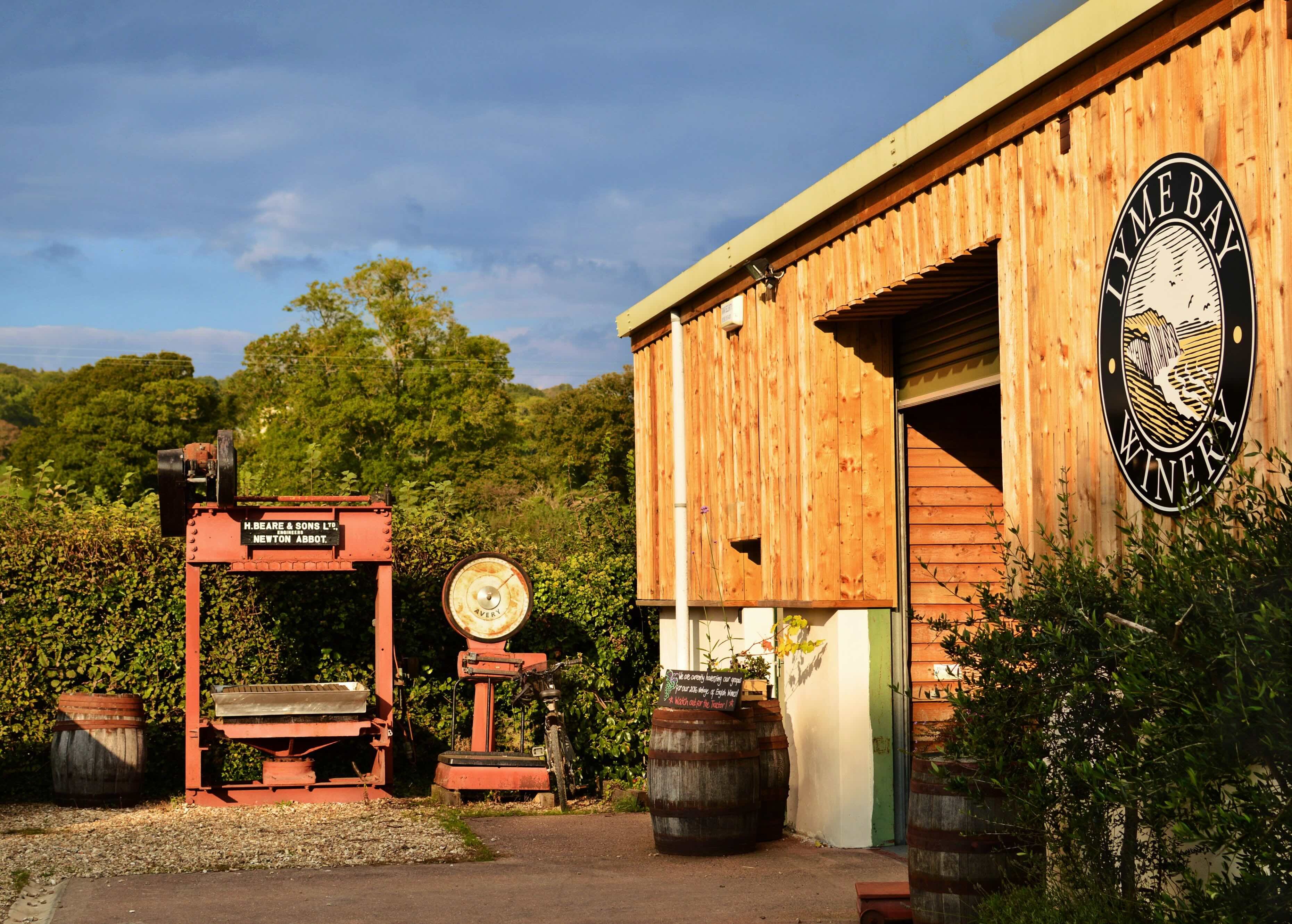You have just enjoyed a very successful performance with the IWC - what did you manage to win?
We’ve had an incredible result at this year’s International Wine Challenge (IWC) becoming the first English producer to win both the IWC National Trophy for Best English White Wine and the IWC National Trophy for Best English Red Wine in the same year. On top of that, we also won both the IWC Varietal Trophies for those wines. It’s an extraordinary achievement and something the team are all hugely proud of.
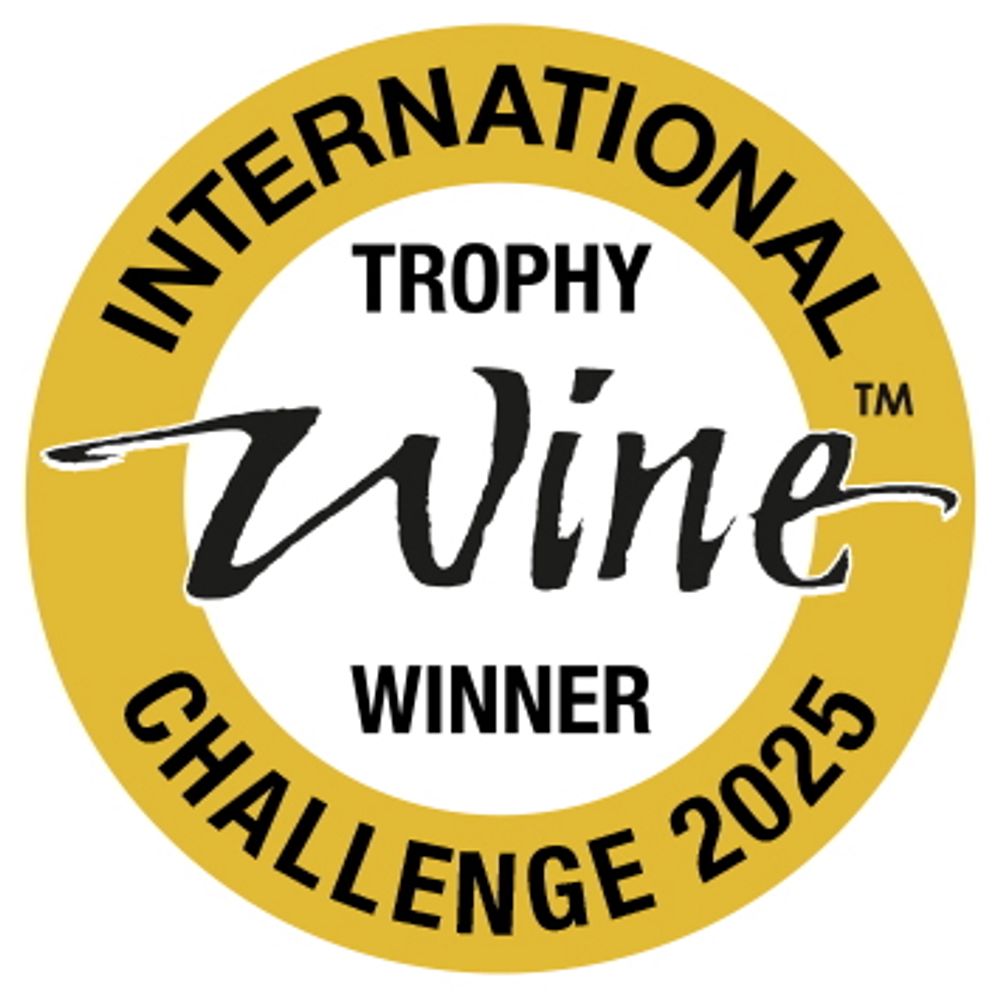
The two wines that won are our Martin’s Lane Chardonnay 2020 and our Pinot Noir 2021,both wines that really represent the heart of what we’re trying to achieve at Lyme Bay - world-class still wines made from some of the best fruit grown in England.
Our focus as a winery has always been about quality and growth, and I think this moment is a really exciting one, not just for us, but for the future of English still wines as a whole. We’re committed to pushing the boundaries of what’s possible here, and this success shows what can be achieved when you have the right fruit, the right vineyards, and the right team behind you.
You have long put your profile and reputation on the quality of English still wine - why have you been so focused on still rather than the more traditional sparkling for premium English producers?
Our focus on still wine really goes back to the vision of our previous owner, Nigel Howard, who hired James Lambert. Both Nigel and James shared a huge passion for still wine, they travelled all over England tasting wines and saw the potential that was there. At the time, still wine was really just a by-product of sparkling production in the UK, and they wanted to turn that on its head.
They came up with a business plan for Lyme Bay to do the reverse of what most of the industry was doing, to put still wine front and centre. From very early on, they recognised the potential of the Crouch Valley region in Essex for growing outstanding grapes specifically for still wine production, and that’s been a core part of our approach ever since.
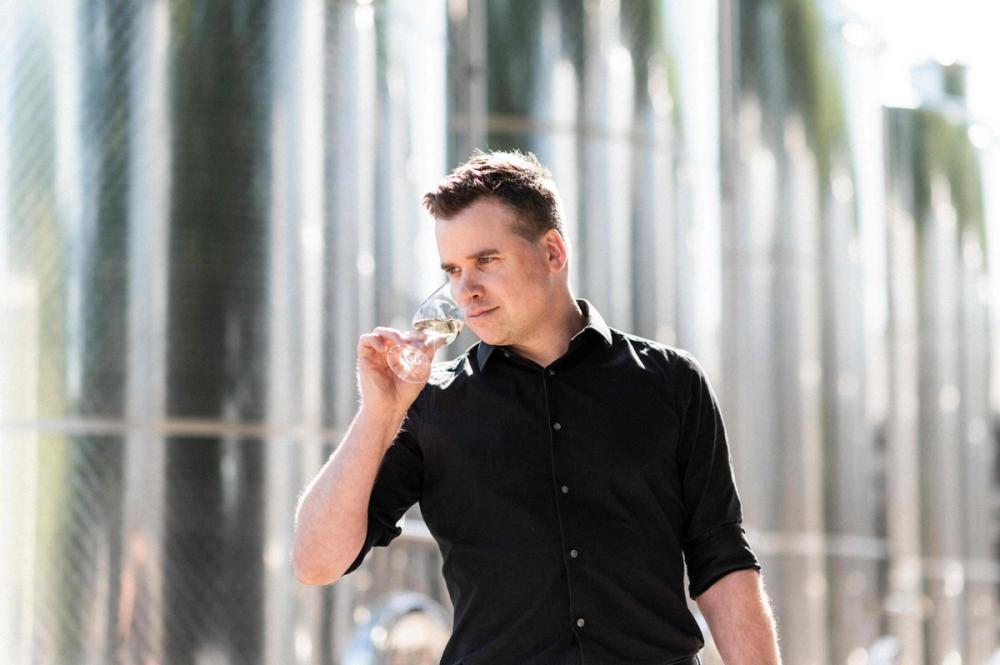
James Lambert has helped turn the dream of the Lyme Bay owners into reality by focusing on high quality, precision made still wines
That focus hasn’t changed. Today, our production is about 60% still and40% sparkling, which is quite unusual in the English wine world, but it absolutely reflects where our passion and ambition lie.
What do you think have been the key factors in your success at the IWC in terms of the quality of the wines and how they are made?
It all starts with the fruit. Both of these wines are exceptional because of the quality of the grapes we source, and the Crouch Valley is just an incredible region for still wine. The level of ripeness you can achieve there really sets it apart. The 2020 and 2021 vintages were very different, 2020 was a warmer year, but 2021 was much cooler, so the grapes needed a lot more hang time, around three to four weeks longer.
That extended ripening was only possible because of the unique climate and vineyard aspects in Crouch Valley, which really allowed us to get the fruit to the level we needed.
In the winery, it’s all about attention to detail and not cutting corners. For the Chardonnay, we whole-bunch pressed directly into oak for fermentation. For the Pinot Noir, we de-stemmed with about 6% whole bunch, then carried out small-batch fermentations with manual pigeage gently punching down to really maximise colour, flavour, and structure.
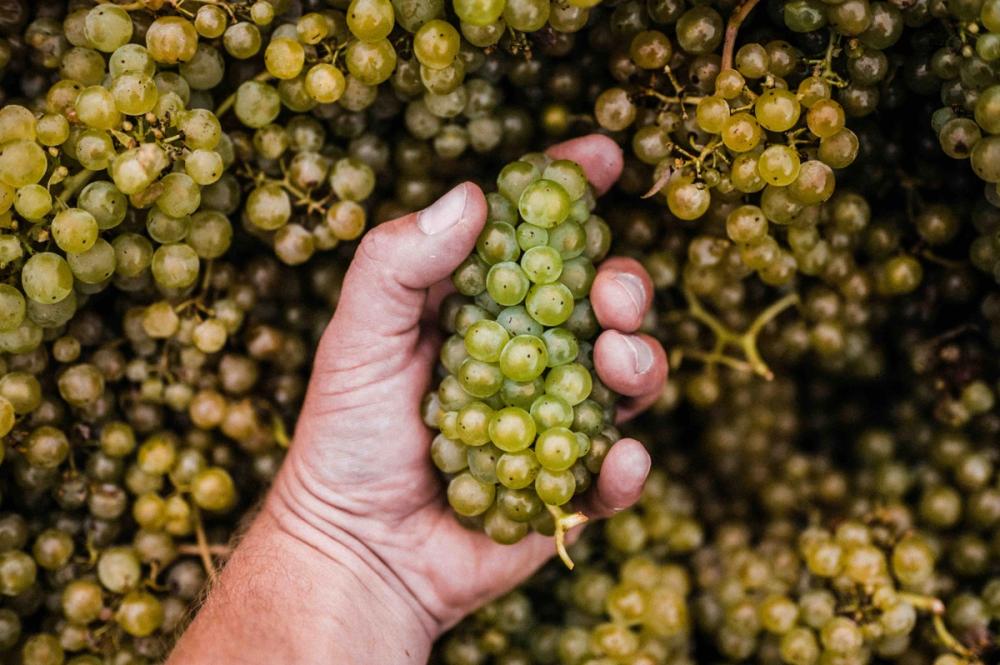
Lyme Bay's focus is on rewarding its growers for the ripeness of their fruit and not their yield which is typical in sparkling wine production
After that, the Pinot was transferred to barrel for 100% malolactic fermentation and ageing. We used around 30% new French oak, and also experimented with some American and Eastern European oak for added complexity.
The wine then spent nine months in barrel, before James and the winemaking team blended the batches and let them settle for a couple of weeks ahead of bottling. Ultimately, it’s that combination of top-quality fruit, careful vineyard selection, and real precision in the winery that I believe makes the difference.
Clearly where you are sourcing your grapes from has a massive factor - can you talk us through how you do that and the relationships you look to build up with your growers and producer partners?
Right from the start, James and Nigel had a very clear vision, they wanted to produce world-class still wines. That meant shifting the mindset of our growers, who were mostly used to planting and growing grapes for sparkling wine. It was a big change, and one that took time to build.
We work very closely with our viticulturalist, Duncan McNeill, who is based out in Essex. Duncan plays a crucial role in helping us develop these relationships and in managing the quality of the fruit coming in.
One of the key differences in our approach is that we reward growers for ripeness, not yield, which is very different from the sparkling wine model, where you are often focused on volume and acidity.
The clones planted are absolutely critical too. James has worked closely with our growers over the years to encourage them to plant clones that are much better suited for still wine production, clones that will give us the flavour, concentration, and structure we need to make wines like the 2020 Chardonnay and 2021 Pinot Noir.
Ultimately, it’s a real partnership. We rely on the expertise of our growers, and we work with them long-term, building trust, sharing knowledge, and making sure that together we’re producing the best fruit possible for still wines. That’s the foundation of everything we do.
As consultant winemaker this is also a big accolade for yourself personally - what is your reaction?
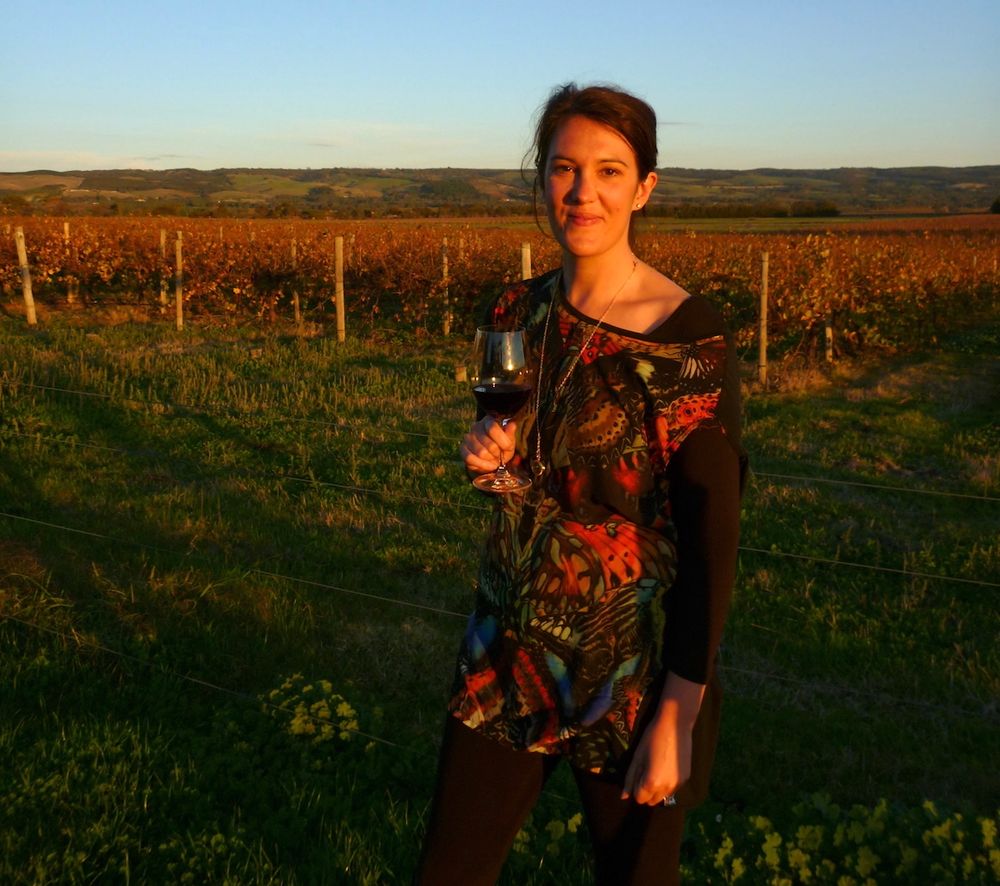
Clem Yates MW is understandably delighted to have played her part in Lyme Bay's recent success in her new winemaking consultancy role
I am absolutely thrilled for everyone at Lyme Bay, these awards are a reflection of their vision and all the hard work that has gone into making these wines. It’s a huge moment for the whole team, and I’m so proud to be a part of it.
For me personally, it’s incredibly rewarding to work with a team that really believes in what we can achieve and is just as passionate about crafting high-quality wines as I am. From the growers to the cellar team, everyone is completely committed to pushing the boundaries of what English still wine can be. I am delighted to be able to carry on James legacy.
Why did you want to work with Lyme Bay?
I have known James since my first winemaking role over 15 years ago. We bumped into each other at the London Wine Fair in 2023 and I had the chance to taste the 2020 Chardonnay and the 2021 Pinot Noir. I was absolutely blown away, they were unlike any other English still wines I had tasted before. The quality, the balance, the sheer potential of what they were doing really stood out.
So when the opportunity to work with Lyme Bay came up late last year, I absolutely jumped at the chance. The ambition here to make world-class still wines really matches my own — it was a perfect fit.
You talk about your direction being "icon level" - what do you mean by that and how far away do you think you are from achieving that?
When I was a winemaker at Sainsbury’s, Judith Batchelar OBE taught me something that really stuck with me, that if you want to develop a brand, you need to set the benchmark you want to achieve. That gives you a clear direction and allows you to plan the path towards it.
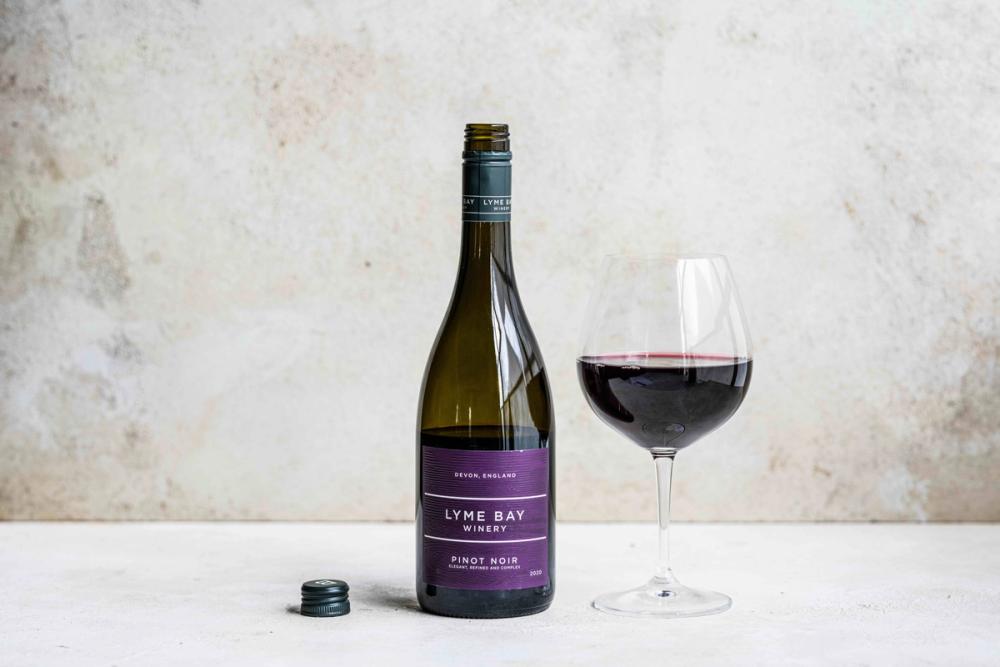
Lyme Bay is focused on making what it calls "icon status" still wines
When we talk about "icon level," that’s exactly what we mean. We’re setting our sights high and we want to be seen alongside the very best still wines in the world. Winning four trophies at the IWC this year shows that the quality is absolutely there for us to build on.
What are the key factors that distinguish a potential icon level wine from a good, high quality wine?
Well, winning gold medals and trophies certainly helps. But in the pursuit of perfection, for me, an icon-level wine always comes back to the quality of the fruit, that is absolutely fundamental.
Then it’s about what you do with that fruit in the winery. The attention to detail, the precision, and sometimes the willingness to take a risk and push boundaries to create something that isn’t already in the market. It’s about going beyond making a good or even a high-quality wine, it’s about crafting something with real personality, depth, and distinction.
Something that people remember, that sets a new benchmark. That’s what we’re aiming for.
You also say you are not chasing Burgundy but looking to create excellence within English still wines per se - what are the factors in achieving that and what are you doing?
I believe excellence within English still comes from making the right decisions from the ground up - starting with planting the right clones in regions where you can consistently achieve ripeness, even in cooler years. Growing grapes here is still challenging and there are huge variations in harvest conditions So choosing the right sites and the right plant material is critical.
Tiptree was the first vineyard that Lyme Bay had an influence over what clones were planted, for example a mix of Dijon and Spatburgunder clones for the Pinot Noir and this has led to Lyme Bay being able to produce high quality still wines.
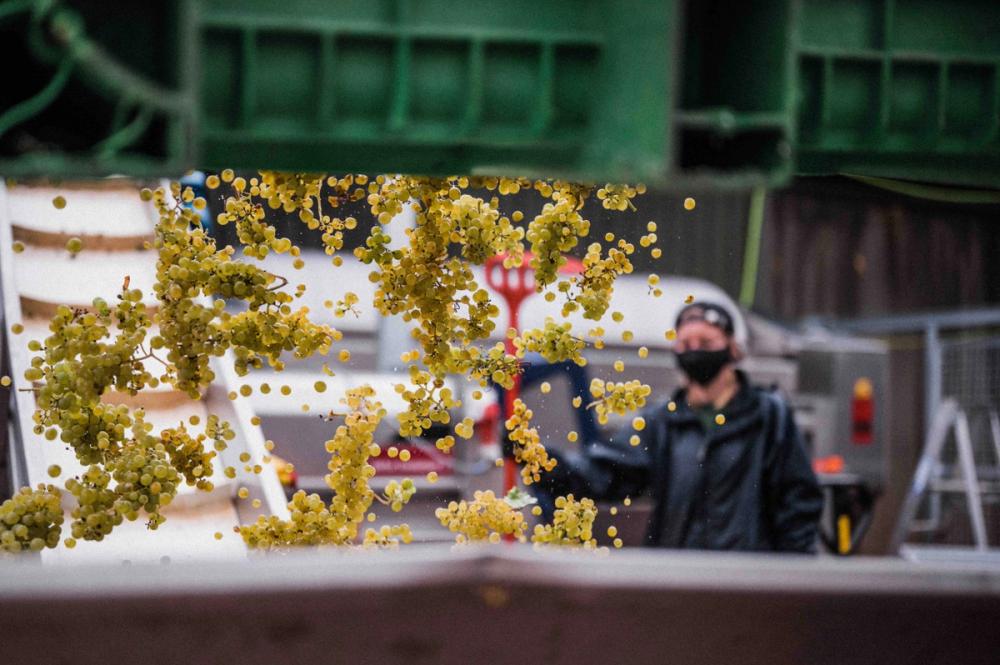
Lyme Bay is looking to make improvements in its winery to help take its still and sparkling wines to the net level
By rewarding our growers for the ripeness of the grapes, not yield, shifts the focus completely towards producing the best possible fruit. It’s about quality over quantity at every step. That’s what is going to help us create wines that aren’t trying to mimic Burgundy, but instead stand proudly as the very best of English still wine.
You also say that an English still wine style will emerge - what do you think that will be and again what are you doing to get there and achieve that?
For me the defining style of English wine is its acidity, you cannot escape the high levels and so as a winemaker you have to come up with ways of balancing it, critical when making still wines, but I see this as a real positive. These high levels of acidity mean wines can be aged and pair well with food, which are all characteristics of high-quality wines.
I do believe that over time, a uniquely English still wine style will emerge - one that celebrates that freshness, that vibrancy, that precision of flavour. For us at Lyme Bay, everything we’re doing from clone selection to vineyard sourcing, to how we handle the wines in the cellar is about building towards that style and helping it evolve in the most exciting way possible.”
What other steps are you making that we will see come to the fore in future years in terms of viticulture and winemaking and wines you are making?
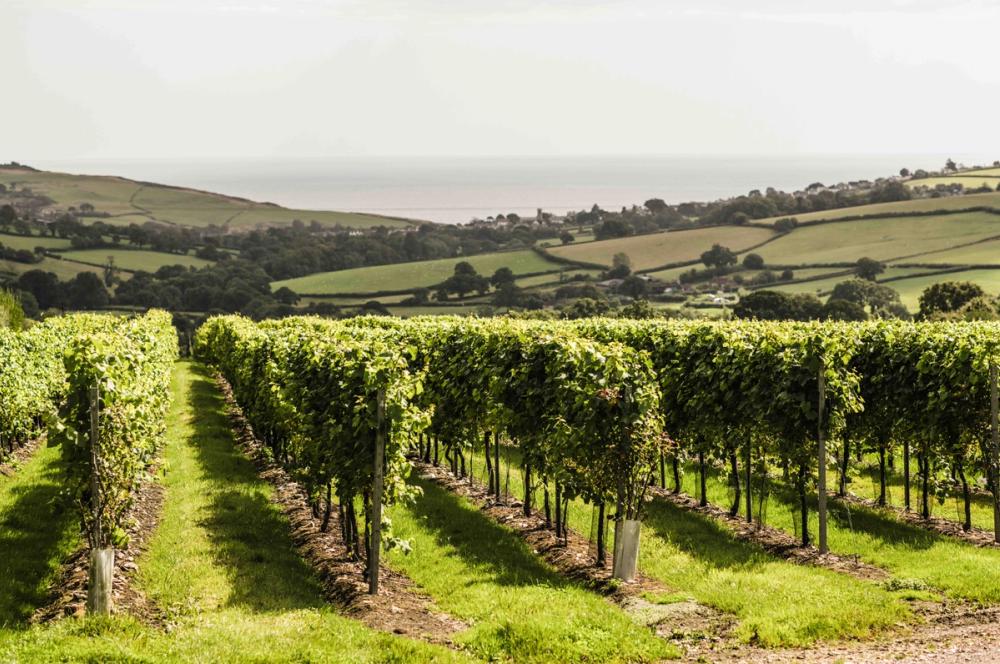
Sourcing the right fruit from the right vineyards is key to Lyme Bay's success
We are bringing in smaller tanks so that we can keep some of the vineyards and clones separate, so that we can isolate even better-quality characteristics and understand the terroirs of some of the fabulous grapes we source, before having to blend them. We're also exploring the possibility of producing some top tier, single vineyard releases but you will have to watch this space.”
What are the biggest challenges you are facing and how are you overcoming them?
As an industry, we’re facing significant challenges such as legislation, trade tariffs, and duty ladders. However, it's also an incredibly exciting time to be involved in English wine production. I believe that by working together, we can build upon the growing reputation for high-quality English wines and navigate these obstacles successfully.
* You can find out more about Lyme Bay and the wines it makes at its website here.
